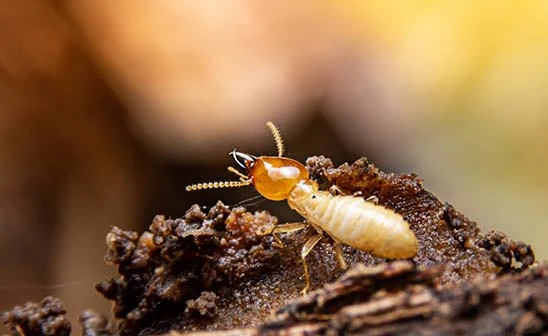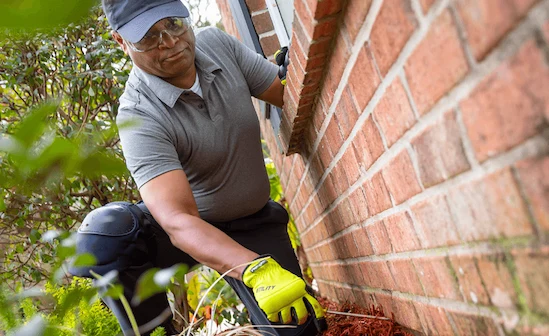Need pest control?
"*" indicates required fields
Trusted Pest Control Experts in Lubbock TX
Bug Out | Est. 1963
Serving Lubbock | Plainview | Levelland | Wolfforth
At Bug Out, we have been committed to providing professional and reliable pest control services for more than 60 years. We understand that to remain one of the top pest management companies, we need to earn your trust. Our team of experienced local exterminators is well-trained, drug and background-tested, and educated to stay up to date with the latest in the pest management industry. Pests are a common problem for home and business owners here in Lubbock, and we are proud to employ certified specialists with unique knowledge of how to control pest infestations in our area.
With a variety of comprehensive pest treatment plans, we can modify our service to give each customer the specialized treatment they need and desire. With our dedicated, friendly and experienced office staff and exterminators, we can help protect your family and home from the dangers of pests year-round.
Need Pest Control Service?
Leave your information below and we’ll be in touch with a FREE quote!
"*" indicates required fields
*During normal business hours. After hours calls will be returned the next business day.
Local Exterminators You Can Trust
There’s no good place to run into pests – but they can be especially distressing and dangerous in your home or business. Give yourself 100% peace of mind by eliminating the problem quickly and effectively with the help of the experienced exterminators at Bug Out. Founded in 1963, Bug Out has protected residential and commercial properties with innovative treatments and personalized pest control plans that provide long-lasting results. At Bug Out, we focus on quickly solving pest problems along with long-term exclusion to prevent them from coming back.
When it comes to living and working pest-free**, the best choice is Bug Out.
- Experts in Pests Local to Lubbock TX
- Innovative Pest Management Solutions
- Services For Your Home or Business
- Commitment to Safe Pest Treatments
- 100% Satisfaction Guaranteed
Pest Control For Your Home:
Residential Pest Management
Your house may be the biggest investment you’ll ever make – and it’s not just an inviting and cozy place to you. Pests want to make it their home, too. To make matters worse, pests are active all year here in the warm and humid Lubbock TX climate, which means your home needs year-round protection.
In addition to our pest management business, we also provide quality lawn care services in the Lubbock area. Our lawn care professionals can make your property shine through lawn care, weed control, fertilization, and tree services. We know how important it is to keep your lawn looking its best—our lawn care experts can help.
Pest Control For Your Business:
Commercial Pest Management
At Bug Out, our team will work with you to develop a commercial pest control plan that focuses on putting a stop to pest threats year-round with scheduled appointments, thorough inspections, and discreet service visits. We have over three decades of experience providing reliable business pest control.
Our exterminators are committed to delivering innovative pest solutions to help you protect your company. We protect properties with innovative technology and customized solutions focused on ongoing prevention, monitoring, and exclusion. Trust Bug Out to keep your business pest-free*, year-round.
Bug Out Reviews
– Jody H.
Your Local Pest Control Experts Serving Lubbock, Plainview, Levelland, Wolfforth
Lubbock County | Hale County | Hockley County | Crosby County | Garza County | Lynn County | Terry County | Lamb County | Floyd County
Lubbock | Plainview | Levelland | Wolfforth | Idalou | Slaton | Littlefield | Post | Tahoka | Brownfield | Floydada | Crosbyton
Home





